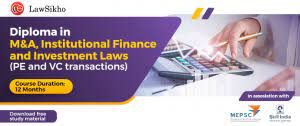This article has been written by Akshay Verma pursuing the Diploma in M&A, Institutional Finance, and Investment Law from LawSikho.
Table of Contents
Introduction
Croatia is a nation at the crossroads of Central and Southeast Europe on the Adriatic Sea. Croatia is a tiny and complex market but plays a crucial role in the political and economic stability of Southeast Europe. In the year 2019, 44 M&A deals were consummated in Croatia. M&A transactions are not only consummated for growth and generating new ideas. There is also a chance that the companies merge to destroy competition and to create a monopoly in the market. To keep these activities of companies in check, all countries have their merger control laws or regulations which restrict these activities of companies. Merger control enforcement continues to grow around the globe.
Do you know how M&As are regulated in Croatia? The Croatian Competition Act regulates mergers in Croatia. The Croatian Competition Agency is the regulatory authority responsible for reviewing and assessing combinations. In this article, I will talk about key M&A regulations in Croatia. To begin with, let us look at the impact of Covid-19 on M&A deals in Croatia.
Impact of Covid-19 pandemic on M&A deals in Croatia
The beginning of 2020 saw an unprecedented challenge in the form of the Covid-19 pandemic. Even though the number of recorded M&A transactions in Croatia was only down by one compared to 2019, in 2020 the total value of recorded M&A transactions amounted to USD 380 million i.e. 40% less than in 2019 however, various high-profile and high-level deals attracted the attention of the public. The biggest M&A transaction in Croatia in 2020 was the acquisition of Infobip, an IT and telecommunications organization, by One Equity Partners, an arm of the US investment bank, JP Morgan Chase.
The major transactions that occurred in 2020 have not only brought significant capital to Croatia but also put the nation on the M&A map of Europe and the globe. However, apart from the worldwide trends, the growth of the M&A market in Croatia will primarily depend on internal factors such as business conditions in Croatia such as legal certainty, tax legislation, and the attractiveness of organizations and technologies seeking investors. Now, let us look at the regulatory authority that controls mergers/combinations.
Regulatory authority
The Croatian Competition Agency is the regulatory authority responsible for reviewing and assessing combinations. The CCA autonomously and independently performs the activities within its scope and powers regulated under the Competition Act. The CCA is responsible for the delivery of its objectives to the Parliament of Croatia. Now, let us look at the definition of control.
Definition of control
The Croatian Competition Act provides that an entity is deemed to have direct or indirect control over another entity if the controlling entity: (i) has more than half of shares in the controlled entity; (ii) may exercise more than half of the voting rights; (iii) has the right to appoint more than half of the members of the Supervisory Board, the Management Board or the appropriate management bodies of the controlled entity, or (iv) is otherwise entitled to manage the business of the controlled entity.
What constitutes a merger?
According to the Croatian Competition Act, a transaction subject to merger control is defined as a transaction whereby:
- Two or more previously independent undertakings amalgamate into one undertaking;
- An undertaking acquires direct or indirect control or prevailing influence of one or more undertakings or in part or parts of other undertakings, for instance by acquiring the majority of shares or holdings or a majority of voting rights;
- There is a change of control over an undertaking that arose in some other way prescribed by the Croatian Company’s Act and accompanying bylaws (e.g., certain entrepreneurial contracts).
Acquisition of minority interest
Acquisition of minority interest that does not emerge in a change of control over a business is not subject to merger control. However, if an acquisition of a minority interest provides someone with de facto control over a business, the transaction will be subject to merger control. This is, for example, the case if the purchaser is granted veto rights regarding decisions that are important for the strategic behavior of the business or if the remaining shares are spread over a huge number of shareholders and the acquired shares de facto provide the purchaser with a decisive influence on general meetings.
Thresholds that determine whether a merger notification must be filed
A merger notification must be filed if the following thresholds are met:
- The combined annual global turnover of all the parties to the combination amounts to at least HRK 1 billion in accordance with the financial statements for the financial year preceding the combination if at least one of the parties to the combination is established and/or has a subsidiary in the Republic of Croatia, and
- The total turnover of each of at least two parties to the combination in the Republic of Croatia amounts to at least HRK 100,000,000 in accordance with the financial statements for the financial year preceding the combination.
There are special rules applicable for combinations in the media market. For the media market, combination filing is mandatory regardless of the size or turnover of the parties.
Transactions that are exempted from filing a merger notification
The Croatian Competition Act specifies that there is no need to file a combination notification in the following situations:
- Where financial undertakings or other credit institutions, investment funds, or insurance organizations whose daily activities include transactions and dealing in securities and are temporarily in possession of interests of an undertaking acquired with the desire to resell, provided that they do not exercise voting rights in such a manner as to influence competitive conduct of that undertaking. The disposal has to take place within one year of the date of acquisition.
- Where control is transferred onto a professional insolvency administrator or liquidator who has powers under the applicable insolvency legislation; or
- Share acquisition as a result of an internal restructuring of affiliated undertakings.
As a result of the EU’s “one-stop-shop” principle, the Croatian combination control rules do not apply if the thresholds for EU combination control are exceeded and the European Commission has not referred the combination to the Croatian Competition Agency.
Treatment of joint ventures
When a joint venture is established by two or more independent undertakings that work as an independent economic entity on a more lasting basis, it constitutes a combination subject to combination control. A joint venture that is not “full function”, because it does not perform all the functions of an economic entity, on a lasting basis, is not subject to combination control but maybe scrutinized under the general restriction on anti-competitive agreements. Whether a joint venture is considered “full function” or merely “cooperative” depends on the level of dependence of the joint venture on its parents and to what extent an independent presence a joint venture possesses in the market.
Process of filing a merger notification
A combination notification must be filed when a binding agreement has been concluded, a controlling interest has been acquired or a takeover bid has been published. There is no specific deadline, but the transaction may not be implemented before the combination has been approved by the CCA. The CCA may agree to handle a notification before a binding agreement has been concluded or a public takeover bid has been announced if the parties can show a good faith desire to agree or- in case of a public takeover bid- if the parties have publicly announced a desire to make such a bid. However, in practice, the CCA does not handle such notifications in case of public takeover bids.
There are two forms available: one for the simplified notification (see here) and one for full notification (see here). Simplified notification may be possible in each of the cases given below:
- Two businesses establish or acquire a joint venture that will only have insignificant business in Croatia;
- A business goes from having joint control to having sole control over another business;
- The combining parties are not active on vertically connected markets or same markets;
- The combining parties are active on identical markets but do not have a combined market share exceeding 15% in Croatia;
- The combining parties are active on vertically connected markets but there are no horizontal overlaps and none of the parties have market shares exceeding 25% in Croatia on those connected markets.
The CCA may always request a full notification even if the obligations for simplified notification are present and even after having accepted and declared a simplified notification complete.
For a combination notification, whether simplified or full, the following documents should always be supplied:
- The most recent audited annual financial statements and annual reports for each of the parties to the combination;
- Documentation regarding undertakings that have been acquired or sold after the conclusion of the most recent financial year;
- All documents concerning the combination, regardless of whether the combination is brought about by the agreement between the parties to the combination, public takeover bid, or acquisition of a controlling interest;
- Overview/group chart of each of the parties to the combination;
- Excel file with contact information for most significant competitors, suppliers, and customers;
- Any documentation on which the parties have based their market definition and assessment of market shares;
- A non-confidential version of the notification (to be supplied to the third parties) and;
- Documentation of payment of the applicable filing fee.
For full notification, a range of further documents may be relevant including reports, analysis, minutes of board meetings, and similar documents related to the combination. The filing fee for combination control notification is HRK 7,000.
Consequences of implementing a merger without approval
The parties may be fined if the combination is implemented before the approval of the Croatian Competition Agency. The amount of the fine will be fixed based on the gravity, nature, and duration of the infringement, and the fine cannot exceed 10% of the parties’ global turnover. Furthermore, the combination may be prohibited, and the CCA may decide to split up the combined entity or take any other steps essential to restore efficient competition.
Judicial review
A party to the combination may file an administrative lawsuit to the High Administrative Court of the Republic of Croatia within 30 days from the delivery of the CCA’s decision. The court shall decide on
- Violations of substantive competitive law regulations;
- A material breach of the procedural provisions;
- Incompletely or incorrectly facts; and
- Wrong decisions on the administrative-penal measure (i.e., fine) and other issues decided by the CCA.
The administrative lawsuit does not suspend the execution of the decision, except in the part of the decision that relates to the imposed administrative-penal measure.
Conclusion
To recapitulate, the Croatian Competition Act regulates mergers in Croatia. The Croatian Competition Agency is the regulatory authority responsible for reviewing and assessing combinations. There are special rules applicable for combinations in the media market. For the media market, combination filing is obligatory regardless of the size or turnover of the parties. The parties may be fined if the combination is implemented before the approval of the CCA. Any decision by the CCA can be challenged in the High Administrative Court of the Republic of Croatia within 30 days from the delivery of the CCA’s decision.
References
- https://www.mergerfilers.com/guide.aspx?expertjuris=Croatia.
- http://www.aztn.hr/uploads/documents/eng/documents/COMPETITION_ACT_2009_1.pdf.
- https://www.trade.gov/knowledge-product/croatia-market-overview.
- https://www.devex.com/organizations/croatian-competition-agency-aztn-114067.
- https://practiceguides.chambers.com/practice-guides/corporate-ma-2021/croatia/trends-and-developments.
Students of Lawsikho courses regularly produce writing assignments and work on practical exercises as a part of their coursework and develop themselves in real-life practical skills.
LawSikho has created a telegram group for exchanging legal knowledge, referrals, and various opportunities. You can click on this link and join:
 Serato DJ Crack 2025Serato DJ PRO Crack
Serato DJ Crack 2025Serato DJ PRO Crack










 Allow notifications
Allow notifications


